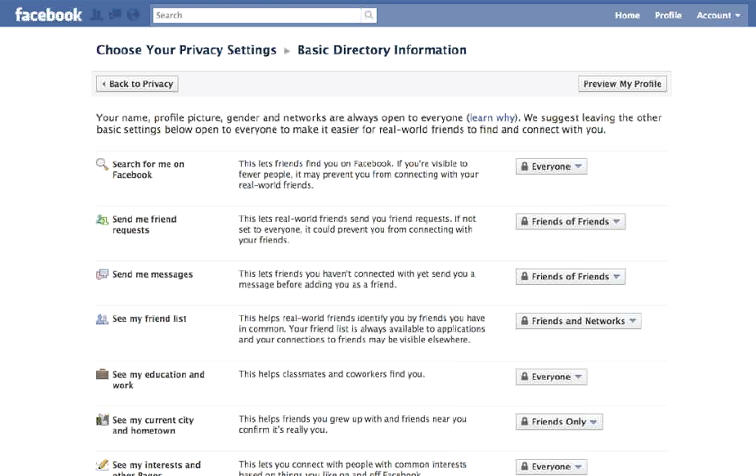Mark Zuckerberg's mission: Develop Facebook sans privacy flaps

Updated: Facebook CEO Mark Zuckerberg unveiled Facebook's new privacy settings, which are designed to be more simple and user friendly, and the talk was quite the balancing act. If successful, Facebook will manage to do something it hasn't been able to yet: Put product development and its privacy policy into their respective corners.
Until today, a new feature from Facebook would require a set response from me as a user. If there was a new feature, I'd need to check my privacy settings. If Facebook gets these privacy changes right I won't have to sweat a new feature because my settings will carry forward.
The key points from the Facebook press conference:
- Zuckerberg said the company's changes were a reflection that Facebook listens.
- However, he noted that a lot of the privacy hubbub was overblown based on user data---the News Feed feature caused a much larger backlash. In fact, more people were worried about Facebook charging money than privacy.
- But Zuckerberg said Facebook's privacy changes were designed to put the flap to bed for a while. Settings today will apply to new features in the future.
- "We're really going to try not to have another backlash," said Zuckerberg.
Add it up and you have a Facebook move that aims to separate privacy settings and policy changes from new features in the future, including a location service that's still being cooked up.
Also: Facebook launches simplified privacy controls Zuckerberg blog ZDNet Facebook page Techmeme
"Facebook is not a solved problem, there's so much more we have to do," said Zuckerberg, who sounded almost like a politician at times. That pol approach is almost understandable given the vast gray area that is Facebook.
Overall, Facebook's move to solidify and simplify its privacy settings makes a lot of sense. Here's the cycle Facebook's product development is currently in:
- Facebook launches new feature;
- Alters is 5,000 word plus privacy policy;
- Users get confused and angry;
- Backlash ensues;
- Zuckerberg listens, backtracks a bit, tells you everyone wants to share and then gives you more settings.
It's quite tiring eh? But that's Facebook's legacy. It started out as a mostly private site that opened up the user data spigot. If Facebook's default was always open you wouldn't have these privacy skirmishes. That's why Facebook's move Wednesday---if successful---is critical. The company has to get off the privacy-flap-go-round for its own sanity as well as its users'.

Now it remains to be seen if these privacy settings are really more simple. There will also be questions about why you have to still opt out---Zuckerberg says people like to share so that's the default. "The kernel of what we do is that people want to stay connected. There's a view of the world that all information should stay private. That's not what the users have told us they want. We really do believe in privacy and giving people control," said Zuckerberg.
The real trick is providing that control and continuing to innovate. Facebook can make the privacy discussion separate from new product features today will have been a big success.